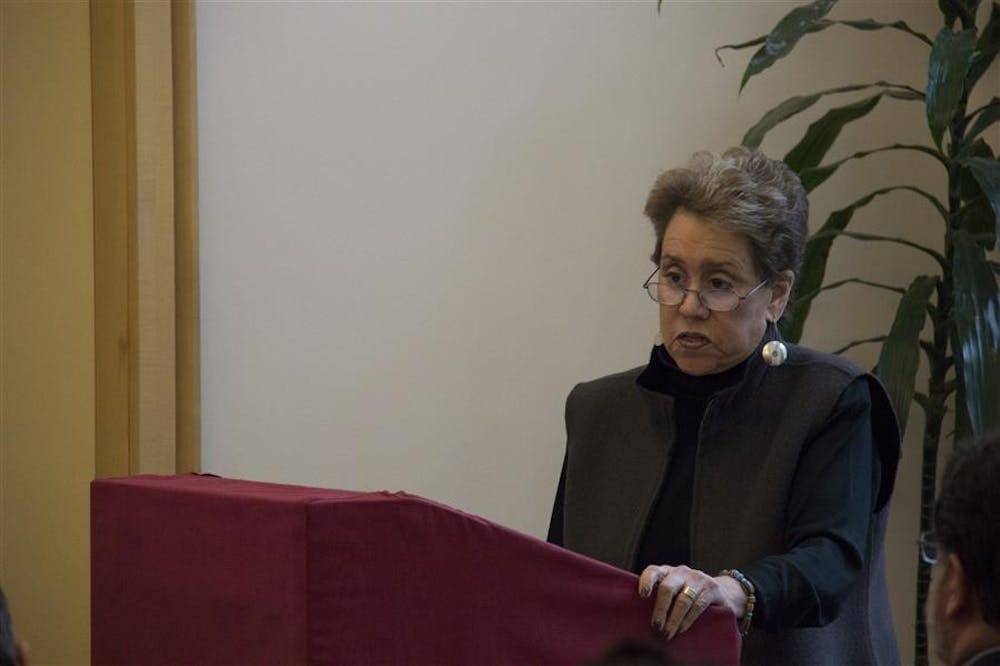Maxine Margolis, professor emerita of Anthropology and Latin American Studies at the University of Florida, spoke to a full room Thursday about what it means to be Brazilian in America.
She discussed anthropological research from her book “Goodbye Brazil,” which is about how Brazilian immigrants identify themselves.
Margolis said Brazilians are often invisible in the U.S. because Americans tend to categorize them as Hispanic or Latino.
“There is a non-recognition of Brazilian as a distinct ethnic group,” Margolis said. “This occurs in common discourse when Brazilians are assumed to be under existing cultural categories such as Hispanic, but Brazilians are far more likely to identify with
their nationality rather than racial or ethnic categories.”
The Brazil Studies Association will soon award Margolis with its Lifetime Contribution Award.
“We’re always looking for distinguished speakers to talk about important topics related to Brazil,” Brazil Studies Project coordinator Luis Gonzalez said. “Professor Margolis is the foremost expert in the U.S. on the topic of Brazilian immigration in the U.S.”
Margolis described how Brazilians strive to differentiate themselves from other Latin American immigrants in America.
Many Brazilians distinguish themselves from Hispanics by speaking Portuguese and associating themselves with other Portuguese-speaking people, she said.
Margolis provided two possible future options for Brazilians in the U.S.
“One, Brazilians will continue to reject pan-ethnic Latino and Hispanic labels,” Margolis said. “This will diminish their ability to join in other immigrant groups, but they might eventually become ‘white’ such as other immigrants before.”
Or they might succumb to the American ethnic labeling, and as time goes on, find the Latino label less problematic, Margolis said.
Several Brazilian students and professors who focus in Brazilian studies attended the talk. First year graduate student at Maurer Law School Vitor Dias said he went because he is Brazilian and likes to connect to his roots.
“I’m Brazilian and a social researcher, so it was good to hear an academic perspective,” Dias said. “Integration is important. We have a small Brazilian community here ... This gives us opportunities to hang out and for others to hear others’ experiences.”
His experiences differ from what Margolis found in her research. He said he identifies as Hispanic and doesn’t understand why more Brazilians don’t do the same.
“I feel Hispanic,” Dias said. “I am in the U.S. and Americans consider me that,
so I am.”
Shane Greene, director for the Center of Latin American and Caribbean Studies, was pleased with the turn out of the event. He said he believes the importance and interest of Brazil academia comes from its growth as a nation.
“Brazil has emerged as a global topic as it grows to a global power,” Greene said. “Why are the Olympics there? What does it mean? The World Cup is there and people are asking, ‘What does this mean?’ Brazil is gaining high-level interest here at IU and in the U.S.”
Follow reporter Suzanne Grossman on Twitter @suzannepaige6.
Brazilian Studies Project discusses identity in U.S.

Get stories like this in your inbox
Subscribe





